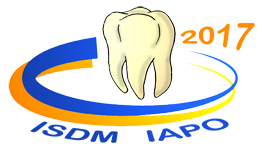Sessions1. Dental evolution in deep time Here we aim to provide a space to present research on dental evolutionary changes in vertebrates (including humans) at the geological scale. This includes morphological approaches and palaeoenvironmental reconstructions.
2. Teeth and archaeology (humans & animals) This session focusses on how teeth can provide information on the biological and cultural diversity in past human populations from different chronological and geographical contexts. We seek contributions focussing on a wide range of anthropological and archaeological questions: biological affinities, microevolutionary changes, subsistence behavior, diet diversity, mobility patterns, cultural geography, etc.
3. Dental growth and development This session brings together researchers who work on dental growth and development at macro- and microstructural levels, focussing on how teeth are replaced and how dentitions become established, emphasizing life-history reconstructions.
4. Dental function and biomechanics We will explore how the masticatory apparatus responds as a structure to biomechanical constraints. This includes soft (e.g. muscle, periodontal ligament) and hard tissue (bones, teeth and their constitutive tissues) anatomy at the macro- and microscopic level, as well as functional analyses and studies on the covariation between teeth and skull shape.
5. Odontology and Paleodontology Approaches on how micro- and macrostructure of teeth and tooth tissues in past or present samples can inform physiology, pathology in biological, archaeological, paleontological, and paleoanthropological research are included in this session.
6. Tooth evo-devo This session focusses on comparative developmental analyses of odontogenesis in vertebrates. It is designed to explore the developmental processes leading to tooth diversity in extant and extinct species at a cellular, tissue, or organ level, and involving the evolution of tooth mineralization, tooth shape or jaw patterning. In particular, we invite contributions from those interested in presenting descriptive or genetic studies on the developmental link between dental and bone (or other mineralized) tissues and on their possible covariation within a species and during evolution.
7. Genetics and epigenetics This session includes studies of the genetic control, the epigenetic factors and/or environmental influences acting on dental development. We seek contributions from the fields of developmental genetics and epigenetics that highlight the mechanisms behind the attainment of tooth size and shape or the development of microstructures. We invite papers covering the diversity of tooth development in vertebrates and welcome functional or descriptive analyses questioning the factors influencing intraspecific variation during odontogenesis. This session includes studies performed in model as well as in non-model organisms.
8. New methods in dental studies We invite contributions on cutting-edge methods used to extract biological and palaeobiological information from teeth and their surrounding structures. Applications from different fields such as imaging, morphometry, rheology, wear, tribology, geochemistry, etc. are welcomed. |


